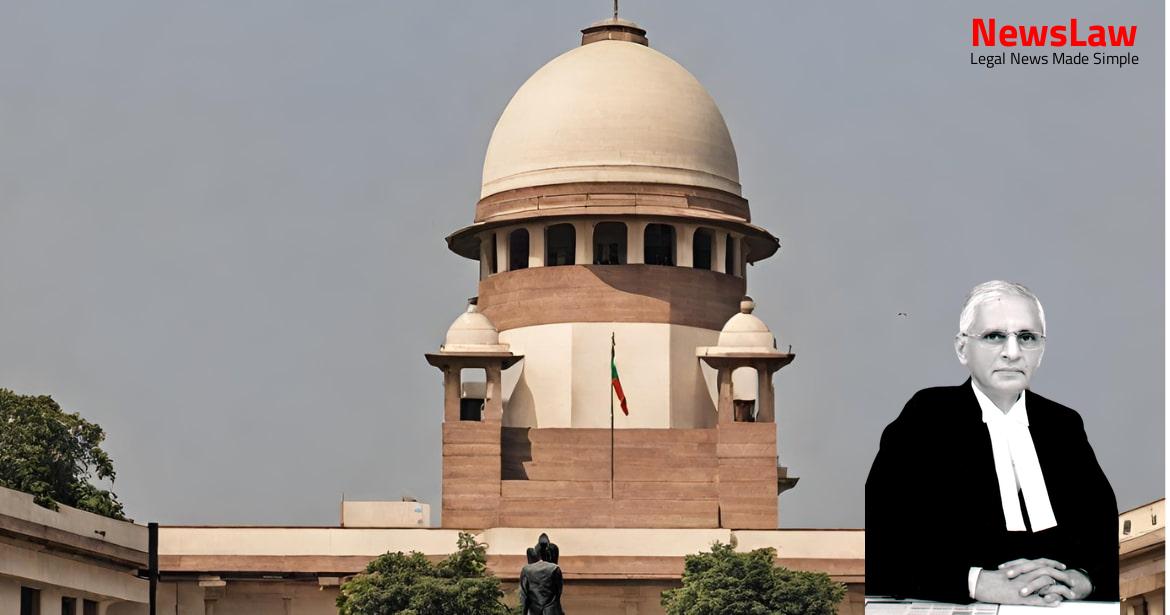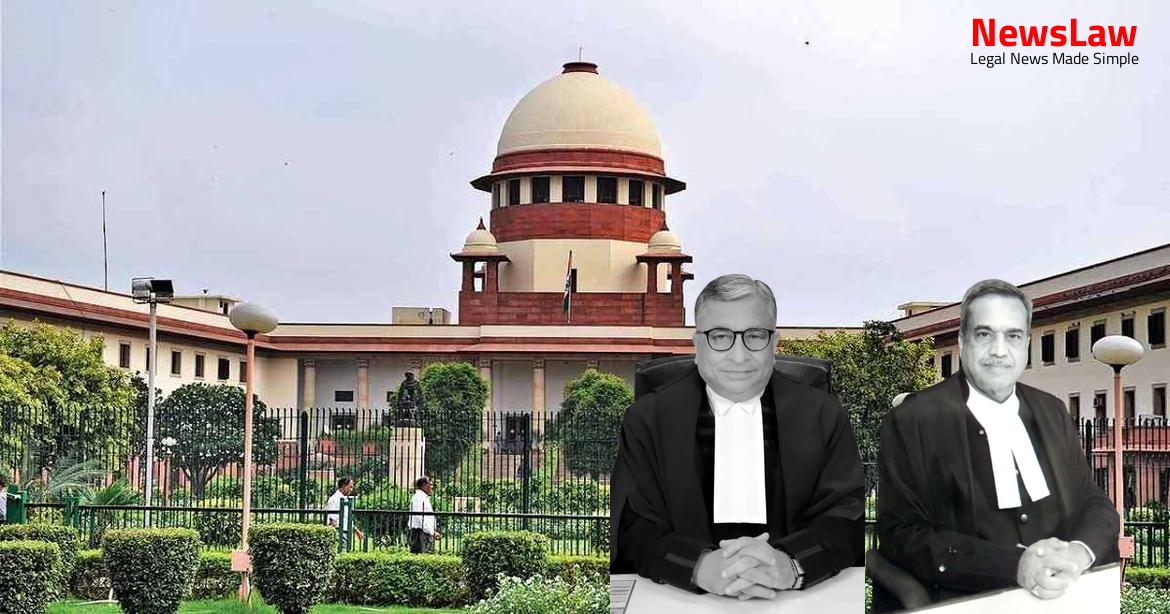Explore the recent court decision that delves into the intricate legal analysis of interpreting rules for compassionate appointments. The focus is on strict adherence to eligibility criteria and the consequences of failing to meet additional qualifications within the specified time period. The court’s ruling sheds light on the importance of upholding the integrity of compassionate appointments within the framework of public employment rules.
Facts
- Respondent was appointed on a temporary basis as a Junior Assistant at the Office of Economics and Statistics, Shahjahanpur.
- Rule 5(1) of the Uttar Pradesh Recruitment of Dependents of Government Servants Dying in Harness (Tenth Amendment) Rules 2014 required the respondent to acquire a typing speed of 25 words per minute within a year.
- The respondent failed his first typing test and claimed computer malfunction during the test.
- Father of the respondent was also employed by the Government and failed to achieve the requisite typing speed.
- Respondent was given a second opportunity but still did not clear the typing test.
- Services of the respondent were terminated on 11 September 2019 based on the Rule 5 of the Dying in Harness Rules.
- Respondent had acquired a certificate of proficiency in computers.
- Respondent filed a writ petition seeking quashing of termination order and reinstatement.
- The respondent was required to obtain a certificate in computer knowledge and pass a typing speed test of 25 words per minute within a specified period as per the appointment order.
- The Division Bench of the Allahabad High Court dismissed the appeal against the Single Judge’s decision, noting that the respondent had already been terminated and directed reconsideration for appointment on compassionate grounds in a Class IV cadre position.
- The Single Judge’s decision to direct reconsideration for compassionate appointment was seen as aligning with the objective of compassionate appointments.
- The proviso to Rule 5(1) of the 2014 Rules states that if a candidate fails to achieve the required typing speed within a year, increments may be withheld with an additional year for the candidate to meet the speed requirement.
- The Single Judge’s decision was based on a previous case where it was held that even if an employee appointed on compassionate grounds does not meet the qualifications for a Class III post, their claim for a Class IV appointment could be considered.
Also Read: Balancing Power and Transparency: Electoral Bonds Struck Down, Disclosure Mandated
Analysis
- Compassionate appointment is an exception to Article 16 of the Constitution, providing a special provision for families of deceased employees.
- Rules for compassionate appointment should be interpreted recognizing it as an exception to equality of opportunity in public employment.
- Appointment through compassionate grounds does not grant subsequent concessions beyond the initial entry level requirements.
- Candidates appointed on compassionate grounds must meet all necessary eligibility criteria and qualifications stipulated by the rules.
- Failure to meet the additional qualifications within the specified time period can lead to termination of services.
- There is no inherent right to compassionate appointment; it is subject to strict adherence to the relevant rules and conditions.
- Employees appointed on compassionate grounds are not exempt from complying with service conditions laid out in the rules.
- Rule 5(1)(i) sets the entry level eligibility criteria.
- This rule establishes the minimum requirements for eligibility.
- The focus is on determining the qualifications for entry level applicants.
- The High Court’s view, based on the earlier decision in Mukul Sagar, was incorrect.
Also Read: Recall of Resolution Plan Approval: Legal Analysis
Decision
- The decision in Mukul Sagar does not lay down the correct principle of law.
- The judgment should not be construed as a direction to the State to disturb the appointment granted to the petitioner in Mukul Sagar’s case.
- The appeal is allowed by setting aside the judgments of the Division Bench and the Single Judge.
- The writ petition instituted by the respondent before the High Court stands dismissed.
- The decisions in Mohd Rehan Civil Appeal and Special Appeal have been disapproved.
Case Title: STATE OF U.P. Vs. MOHD. REHAN KHAN (2022 INSC 806)
Case Number: C.A. No.-005212-005212 / 2022



